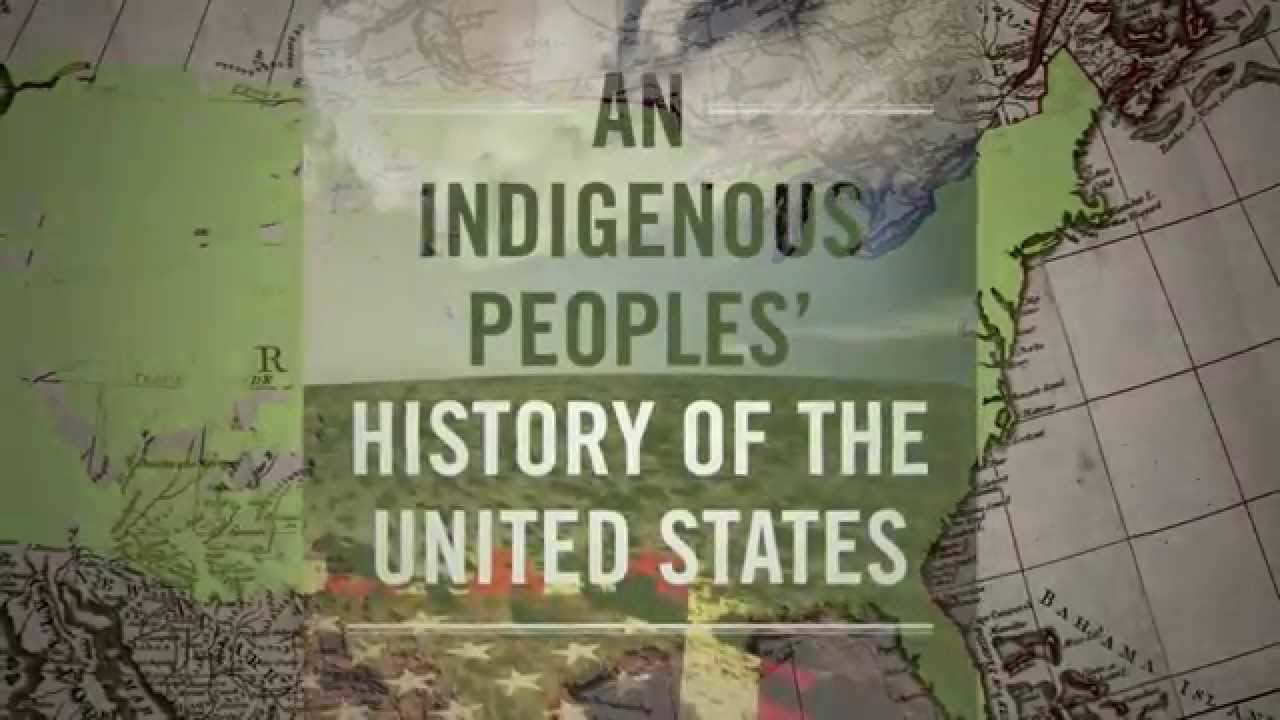
“This may well be the most important US History book you will read in your lifetime.” — Dr. Robin D.G. Kelley providing a testimonial for the work of Roxanne Dunbar-Ortiz.
According to Harper’s Magazine (April, 2017), the minimum number of American colleges that have programs to study their past reliance on slavery is twenty-eight. Well, I trust that it’s instructive for me to point out that there are no institutions of higher education in the U.S. spotlighting, in any shape or form, the fact that indigenous people — men, women and children of all ages — were (with genocidal intent) done away with in order to steal the land on which prestigious institutions now exist.
It’s easy to create a program, but it’s virtually forbidden to even talk about returning land which Native Americans have a legal right to. One can find a handful of campuses on which reparations for African-Americans is formally discussed or debated, but you’d be hard put to find any dialogue — even in campus coffee houses — pleading for restitution vis-a-vis Native American-related theft by the ancestors of highly compensated university presidents.
Native American are, arguably, the lowest people on the proverbial totem pole. Meaning, they’re the last and least likely to be considered when it comes to an ordering of priorities respecting our collective crises. In fact, outfits like Peabody Energy (and many others) — if they thought they could get away with it — would be handing out disease ridden clothing on reservations (with the intention of completing the genocidal mission of our Founding Fathers). Lots of vested interests get very annoyed at Indians protesting the environmental destruction of their sacred lands.
And the general public, including readers of alternative media outlets, look the other way, as corporations conduct their deadly deeds. Looking the other way, by the way, often includes posting pro-Indian articles and speaking on the lecture circuit about Indian-related issues. For to talk or write about what’s politically correct to complain about (without any intention to do something new about anything) is tantamount to going out on a barren street corner and shouting bootless cries about how unfair it is to not give Leonard Peltier a pardon. Is one not looking the other way if that’s the extent of one’s effort to free LP? Marching in circles with placards and participating in candlelight vigils can amount to the same thing, with a little touch of self-satisfaction and/or socialization thrown into the mix. What I call very mixed-up activism. Or… misguided.
But in the Big Picture, what I’m getting down on here is small potatoes. On the macroscopic plane, we all need to first acknowledge the degree to which the U.S. is rotten to the core when it comes to Indians (and select dark others). And that is not being done when a given educational institution puts a program into place (like the ones for African-Americans cited above), but does not at least change its financial-aid or admissions policies to make amends. Only one of the twenty-eight noted above did so.
In response to the Haudenosaunee (Six Nations Iroquois) attempting to discuss whether or not they should support the British or the separatists in the mid-1770s, General George Washington wrote instructions to Major General John Sullivan to take preparatory action against them:
“…to lay waste all the settlements around… that the country may not be merely overrun but destroyed…. [Y]ou will not be any means, listen to any overture of peace before the total ruin of their settlements is effected…. Our future security will be in their inability to injure us… and in the terror with which the severity of the chastisement they receive will inspire them.”
Does that sound familiar?
The thrust of Washington’s injunction is clearly a counterpart to what the U.S. has been doing all over the world since its inception. And which the Scots-Irish — employed by Washington during the Revolution — had done at the behest of his forerunners against other second-class souls in Europe… before migrating to the so-called New World (which wasn’t new at all, unless one was a thieving, genocidal white man).
None of this is really taught in our schools. But I submit that if a teacher reads only the first 77 pages of Roxanne Dunbar-Ortiz’s An Indigenous People’s History of the United States, he/she may very well come up with a program for doing so. May want to, at least, for virtually all issues today — from domestic gun violence to abominations abroad (and more) — have their roots firmly ensconced in the European treatment of Native Americans (from first contact to the present day).
Of course, that might keep an educator from participating in a candlelight vigil, though. Or marching in circles.
Richard Martin Oxman has been an educator and activist for over half-a-century. He would be honored to speak gratis at any educational institution which makes a request at [email protected].









































